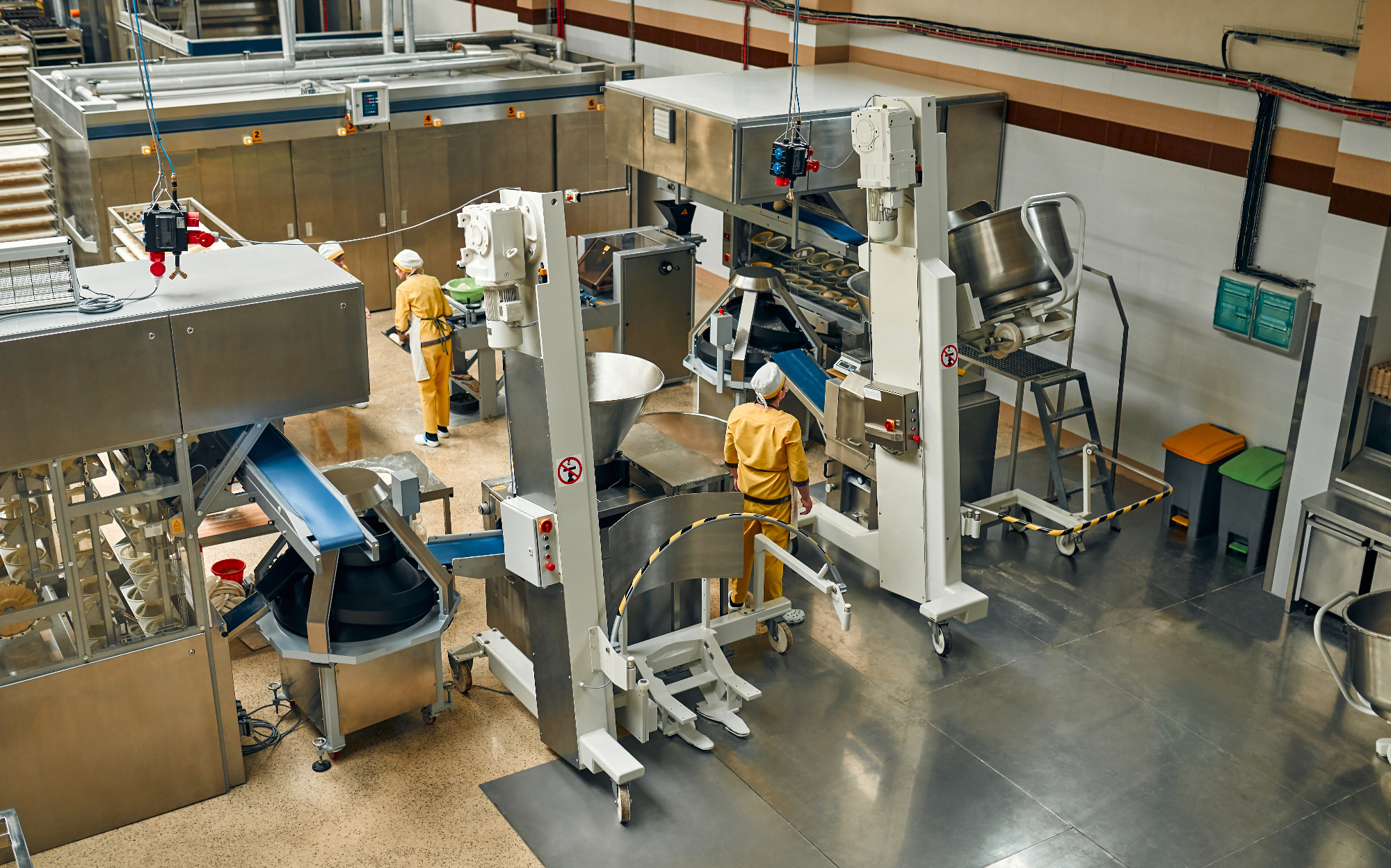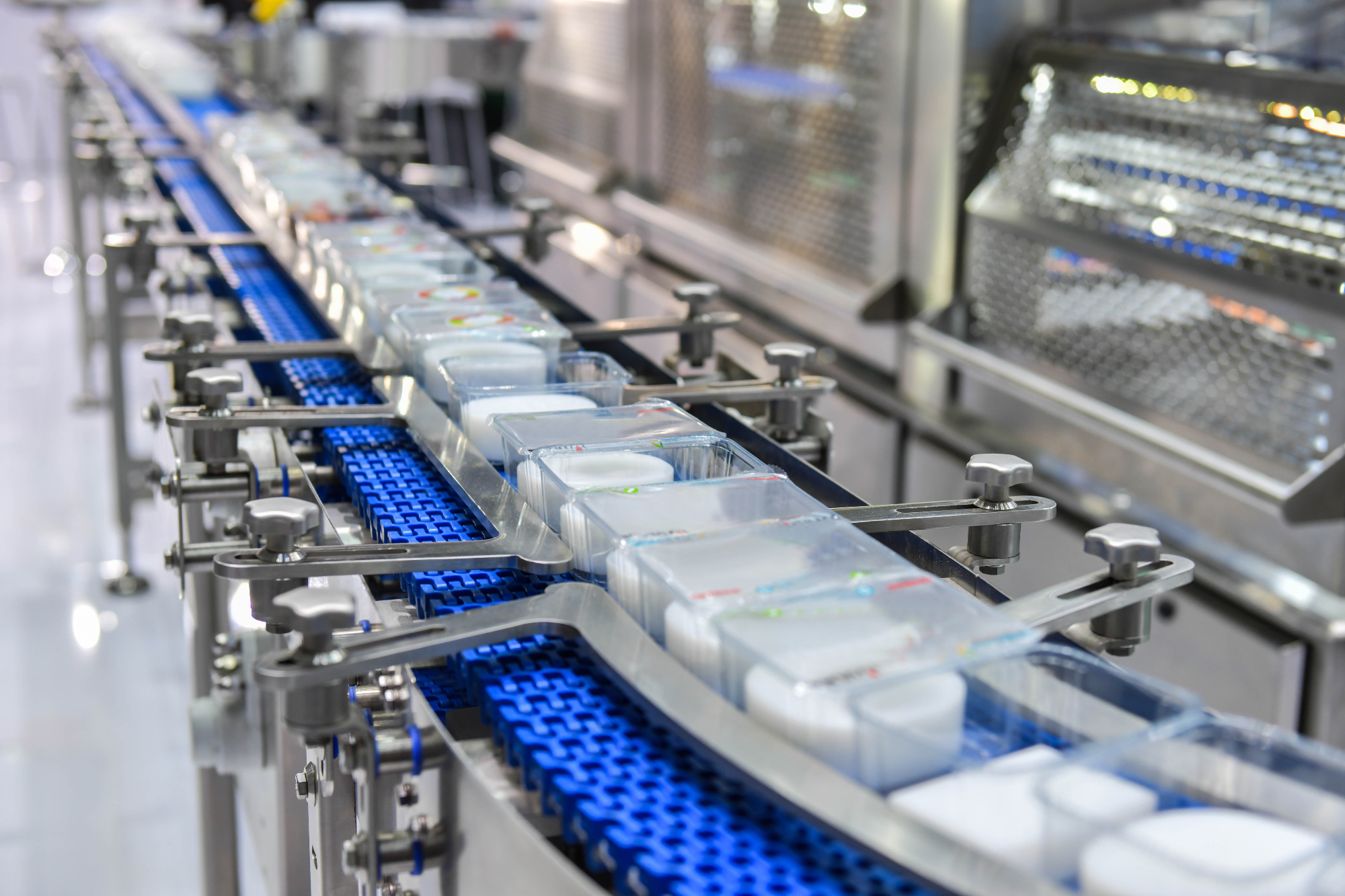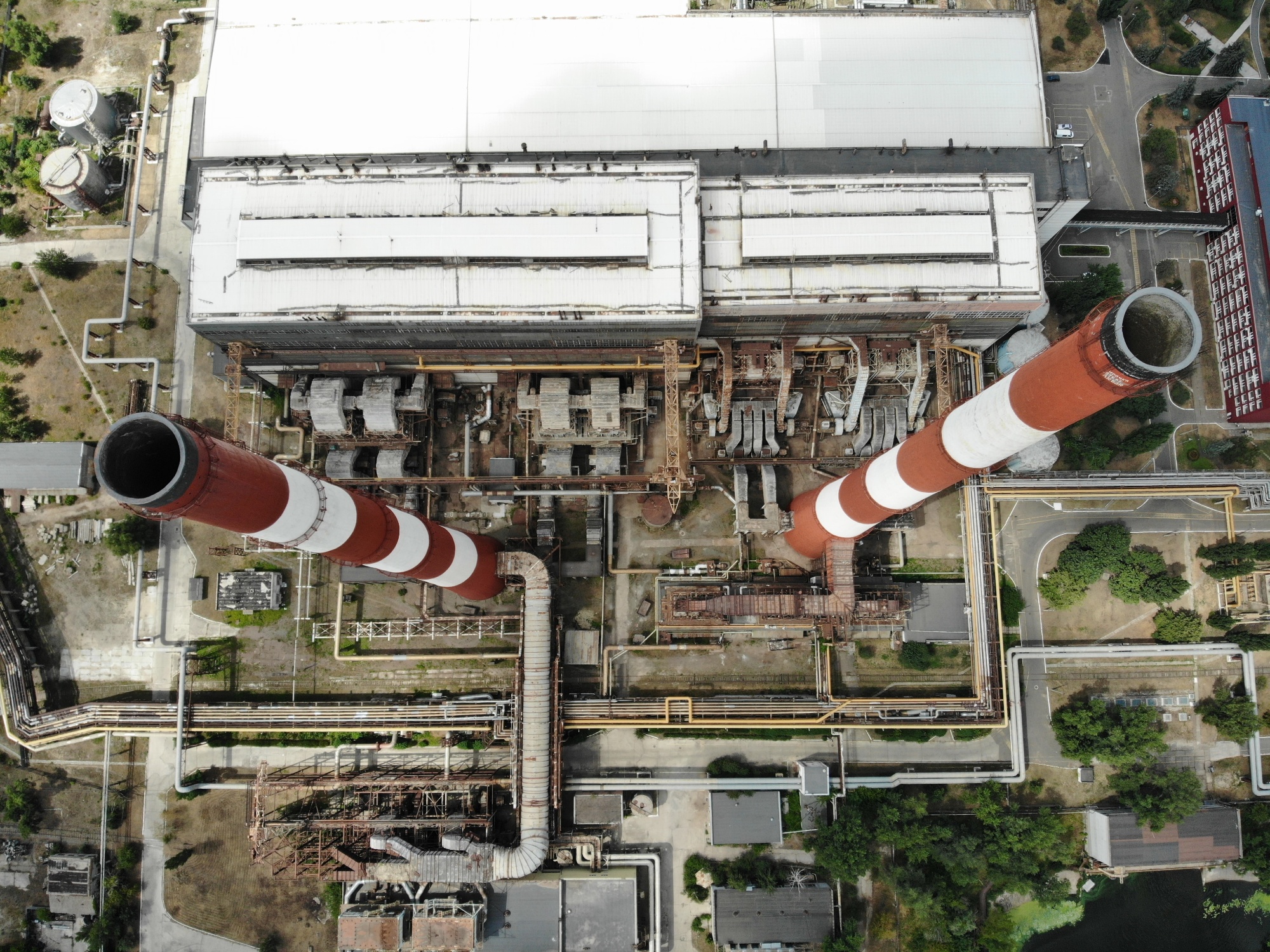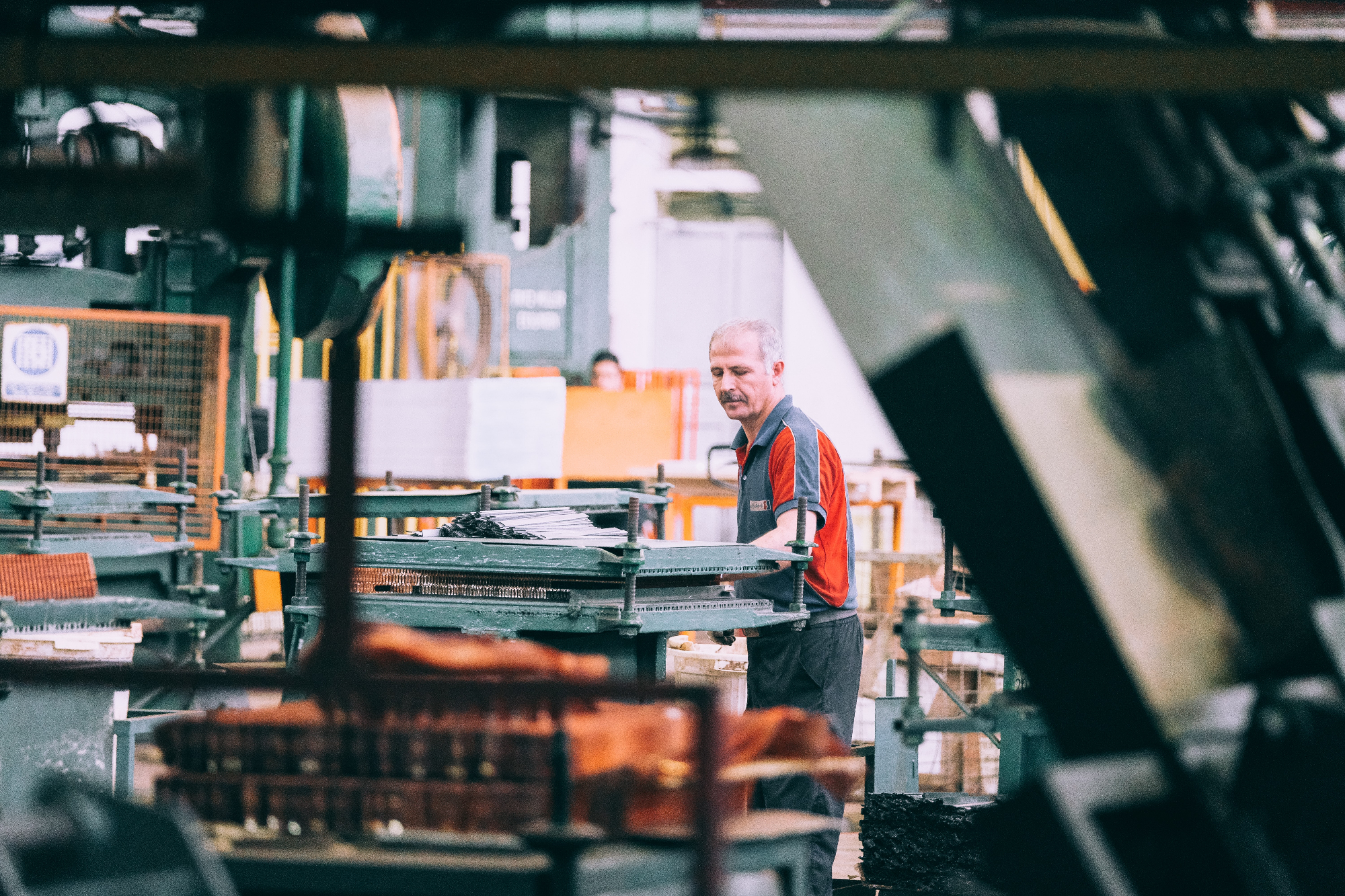Opposites attract. Maybe that is part of why MES and ERP, in an Industry 4.0 environment, are destined to work together. But what are the main advantages of integrating both systems? Five benefits of ERP-MES integration for companies in the manufacturing industry.

Why integrate ERP & MES software?
In the era of smart manufacturing, boundaries between MES and ERP systems will increasingly blur. So, why on earth would you combine both?
Let’s first take a brief look at the different roles of both systems within a manufacturing company:
ERP software integrates day-to-day business processes and synchronises reporting across the company. It is used in almost any department, from planning, purchasing and finance over to HR, marketing and sales. Data is displayed over a period of time, e.g. a week or a year.
An MES platform optimises the manufacturing process itself and is mainly used by people on the floor. MES provides visibility and detailed metrics of production operations in real-time, delivering valuable insights to managers and simplifying the workflow of machine operators.
ERP-MES integration in Industry 4.0
The primary reason why businesses combine both systems is that ERP is simply not designed for the manufacturing floor.
While in production you need real-time flexibility and agility, ERP cannot help and guide operators, analyse bottlenecks, control and improve product quality, or do last-minute product adjustments – all things very much needed in today’s Industry 4.0 environment.
MES can. And if it talks with ERP, it can even do a much better job. Here are 5 crucial benefits of ERP-MES integration for businesses in the manufacturing industry.
Five benefits of MES-ERP integration
1. Make product adjustments ridiculously easy
In case a customer wants to make last-minute changes to a product, the ERP software forwards the new requirements instantly to the MES platform in order to avoid delivery delays. Vice versa, the MES software communicates changes in the production process to the ERP tool in real-time, so that price calculations and delivery times can be adjusted at the business level.
Make clients happy by serving them faster. ERP knows about inventory and sales orders, or even sales forecasts, while MES handles production planning and process control. Do both systems work together and interchange data on a real time basis? Then your business will be able to respond a lot more quickly and flexibly to changing customer demands or other market variables.

2. Maintain continuity in case of ERP calamities
Many things can go wrong with ERP software.
Protect your manufacturing operations from ERP outages. In case ERP becomes unavailable due to technical, security or connectivity issues, ERP-MES synchronisation enables the MES to maintain the production plan, orders and master data until connectivity with ERP has been restored. As a result, business revenue stream and return on assets remain unaffected.
In larger companies, one instance of ERP is often used in multiple production facilities, which imposes an even larger risk to the continuity of business — Through working independently of each other yet maintaining a strong connection, the symbiotic relationship between ERP and MES makes sure that profitability and core stability of global operations is guaranteed.

3. Become an inventory mastermind
Insufficient inventory is detrimental to the bottom line of your business. Similarly, excess inventory ties up working capital that can be used to support digital transformation efforts, e.g. purchasing new equipment and more modern technology. Integrating MES and ERP encourages accurate demand forecasting, and helps to reduce inventory by avoiding overproduction.

No more rush orders, or even worse: costly standstills. Since stock supply is synchronised with ERP in real-time, procurement is able to reorder raw materials from suppliers as soon as inventory falls below a set level. This minimises the risk of production delays, which have a huge impact on overall performance, and avoids additional charges for last-minute deliveries.
4. Make business decisions with precision
Make more informed business decisions based on accurate and real-time data. Generate tailor made reports with up-to-date figures on production operations over any period of time and develop a continuous improvement strategy. Real-time data also allows you to act more quickly on disruptions as soon as they occur, making it easier to anticipate and tackle them.
MES and ERP come together in many areas. Anywhere the two systems overlap, the data can be combined to create an even more holistic view of your manufacturing and business processes. By integrating MES and ERP, you will get more visibility and control over manufacturing processes, going from Overall Equipment Effectiveness (OEE), to inventory and waste management.

5. Become a most wanted employer
Want to retain employees? Integrate MES with ERP. Operators are handed the right tools to simplify their tasks and enable easy, data-driven decision making. As process data (yield, resource usage) is collected automatically, they can spend more of their time being productive, and less time on searching for instructions, manual data entry or waiting for repairs.
The software shows operators in real-time what is next to do and what tasks have been completed. Having a MES is therefore great for employee engagement and job satisfaction. It enables operators to plan their work a lot more independently, while they are relieved from a lot of stress. Moreover, it eliminates errors through manual data entry.

Don’t miss out on growth opportunity
Is your business still relying on paper, spreadsheets or outdated systems for monitoring, planning and managing production? Then you’re missing out on the many opportunities that modern technology can bring to both your business, production process and employees.



